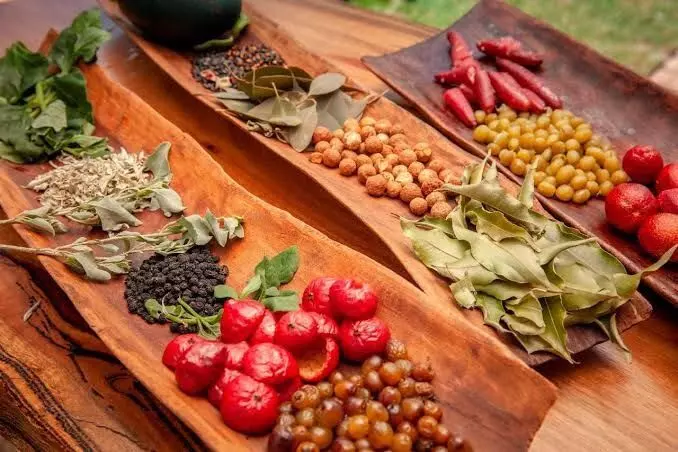Study on indigenous foods to address malnutrition in vulnerable tribal communities
The study found that despite traditional ecological knowledge about a variety of indigenous foods, the consumption of these foods among women and children in all communities was inadequate with poor nutrient intake
By Sulogna Mehta
Hyderabad: Nutrition researchers at the George Institute for Global Health, an independent medical research institute, conducted a comprehensive study that assessed the indigenous food systems of vulnerable tribal communities and their contribution towards food security and nutritional status.
Four tribal communities were assessed—Santhal, Munda, Ho, and Sauria Paharia—and the observations and inferences were presented in various research papers and conferences.
The study was undertaken under the DBT Wellcome Trust India Alliance.
Objectives of the study
The research had three main objectives. The first objective was to characterise the food environment of the four selected tribal communities, assess availability, access, and utilisation of indigenous foods (IF) by these communities, assess perceptions of the communities regarding the IFs and examine barriers and facilitators to increase sustainable production, procurement, and their consumption.
The second objective was to assess the nutritive value of IFs that are routinely accessed and the third objective was to estimate the contribution of indigenous foods to nutrient intake and nutritional status of the communities.
Key findings on inadequate nutrition
The study found that despite traditional ecological knowledge about a variety of indigenous foods, the consumption of these foods among women and children in all communities was inadequate with poor nutrient intake. Vitamin A and iron deficiency was found in some communities. A high prevalence of wasting, stunting and low weight was observed in young children in all the tribes.
It is possible to tackle undernutrition in these communities by implementing strategies such as agricultural extension programmes that promote indigenous crop varieties and nutrition education sessions to increase dietary diversity using indigenous foods. Qualitative discussions revealed that climate variability had a significant impact on the agroforestry systems, with reduced crop productivity, diversity and food availability from forests and waterbodies resulting in reduced consumption of indigenous foods.
The easy availability of cheap ultra-processed foods in local markets was seen to create a shift in dietary patterns, and the promotion of hybrid seeds by local agricultural organizations led to reduced production of indigenous varieties.
The research also analysed the value chains of finger millet and Koinaar leaves among some of the indigenous communities. The study identified post-harvest losses, laborious processes, and weather dependence as barriers to the production and consumption of finger millet, while limited seasonal availability and lack of preservation techniques were associated with reduced production and processing of Koinaar leaves. These needed improved storage, processing machinery, preservation techniques, and market opportunities.
Impact of the pandemic on food security
The Covid-19 pandemic jeopardised food security globally. The researchers conducted a serial cross-sectional study to document the effect of the pandemic on the food environment, agricultural practices, diets, and food security among vulnerable smallholder farmer households in indigenous communities.
The pandemic significantly impacted food security, agricultural practices and the availability and accessibility of indigenous foods. Lockdowns and supply chain disruptions resulted in decreased food availability, reduced access to markets and rise in food prices and changes in food consumption patterns.
Recommendation by researchers
For sustainable and nutritious food systems, the team of researchers also recommended that in addition to increasing the demand for locally produced foods, it is important to promote the creation of community seed banks for distributing indigenous seeds, educating indigenous communities on sustainable farming methods to preserve local landraces and drought-resistant varieties, and supporting communities in establishing home gardens.
Nutrition education sessions that reinforce traditional ecological knowledge and raise awareness about the nutritional significance of indigenous foods should also be encouraged, the researchers recommended.